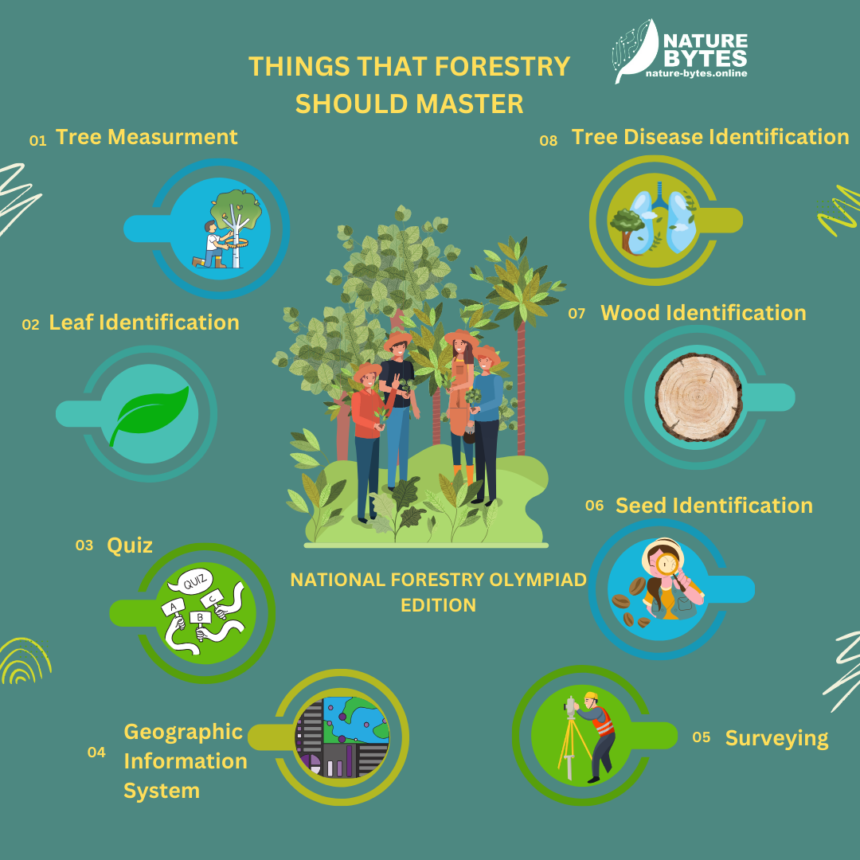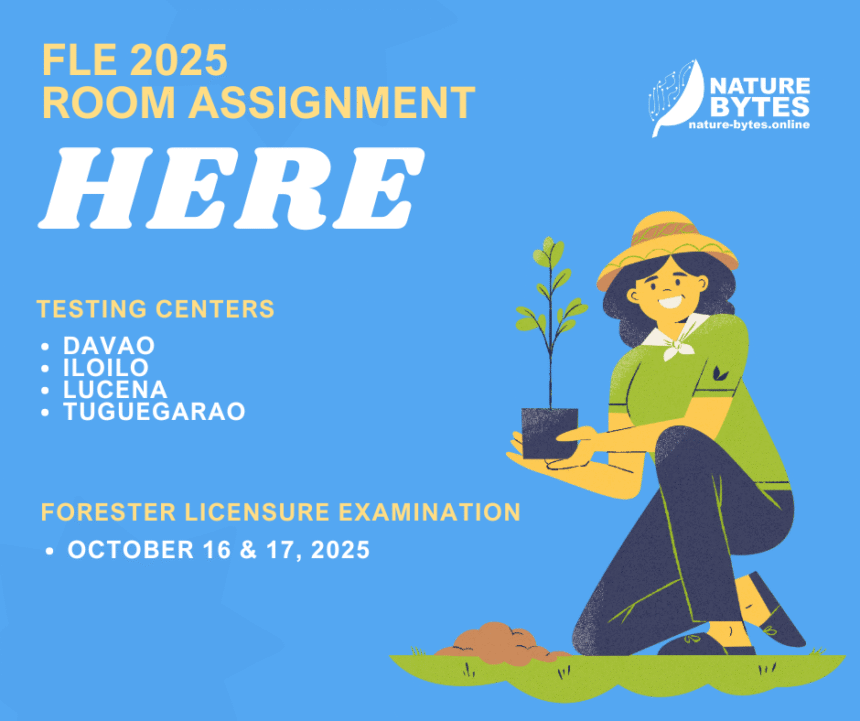Are you a student, observer, faculty coach, organizer, or part of an institution participating in the biennial National Forestry Olympiad? Whether you joined or missed the opportunity, we’d love to hear which category you enjoyed the most and what skills you believe need more focus and improvement. Share your thoughts and tag your colleagues who are working on mastering these vital forestry areas! Here’s a quick rundown of the essential skills every aspiring forester should hone:
Start the REVIEW Now:https://nature-bytes.online/quiz-play/
Download the Mobile App: Nature Bytes: Board Reviewer App
1. Tree Measurement
Mastering the art of calculating a tree’s height, diameter, and volume is fundamental for effective forestry management. These skills are crucial for accurate resource inventory, timber harvesting, and sustainable forest planning. Whether working with a towering pine or a small sapling, understanding how to measure trees efficiently lays the foundation for practical forest management.
2. Leaf Identification
The ability to identify tree species through their leaves—examining shape, size, and texture—is a key skill in forestry. This expertise helps foresters recognize individual species and enhances their understanding of forest biodiversity and ecosystem health. If you want to become a well-rounded forester, being able to distinguish between a maple leaf and an oak leaf is more than just a fun activity—it’s essential to maintaining forest ecosystems.
3. Quiz Your Knowledge
Why not test your understanding of key forestry concepts, ecosystems, and biodiversity? Participate in quizzes to assess your knowledge and identify areas for growth. A strong foundation in these areas is crucial for anyone aspiring to enter the forestry profession. The more you know, the more you’ll be prepared to contribute to sustainable forest management.
4. Geographic Information System (GIS)
GIS is a game-changer in modern forest management. Using mapping tools and spatial data, forestry students can analyze landscapes, track environmental changes, and monitor resource allocation. With climate change and deforestation at the forefront of global issues, GIS is an indispensable tool for tracking forest conditions and making informed decisions.
5. Surveying Techniques
Being proficient in land surveying techniques is a must for anyone pursuing a career in forestry. Whether it’s measuring land areas, boundaries, or natural features, surveying is integral for forest planning, land conservation, and legal land use. Accurate surveying ensures that forests are used responsibly and sustainably.
6. Seed Identification
For successful forest regeneration, it’s essential to identify tree species from their seeds. Knowing which seeds belong to which species helps ensure the right trees are planted in the right areas. This skill is crucial for the restoration of degraded lands and the development of new forests. Proper seed identification aids in maintaining genetic diversity and forest sustainability.
7. Wood Identification
Mastering wood identification is essential for foresters. Examining the grain, color, and texture of different wood types allows you to distinguish between hardwoods and softwoods, determine suitability for various uses, and contribute to forest conservation efforts. This skill is especially important for sustainable timber harvesting and ensuring the right wood is selected for everything from construction to furniture making.
8. Tree Disease Identification
The health of forests depends on early detection and diagnosis of tree diseases. Foresters need to be able to spot signs of pests and pathogens before they cause irreversible damage. Whether it’s identifying fungal infections or pest infestations, understanding tree diseases is crucial for preserving forest health and preventing the spread of harmful species.
Start the REVIEW Now:https://nature-bytes.online/quiz-play/
Download the Mobile App: Nature Bytes: Board Reviewer App
Why These Skills Matter
Mastering these fundamental forestry skills is not just about excelling in an exam or competition—it’s about becoming a skilled professional capable of lasting impact on forest conservation and management. With climate change and deforestation threatening our natural resources, it’s essential that future foresters are well-equipped with the tools and knowledge to lead the charge toward sustainable forest management.
By honing your skills in these areas, you’ll be prepared to face the challenges of modern forestry and contribute to preserving our precious forest ecosystems. Ready to get started? Let us know which skill you’ll focus on next, and tag someone who can benefit from this list of must-have forestry skills!










